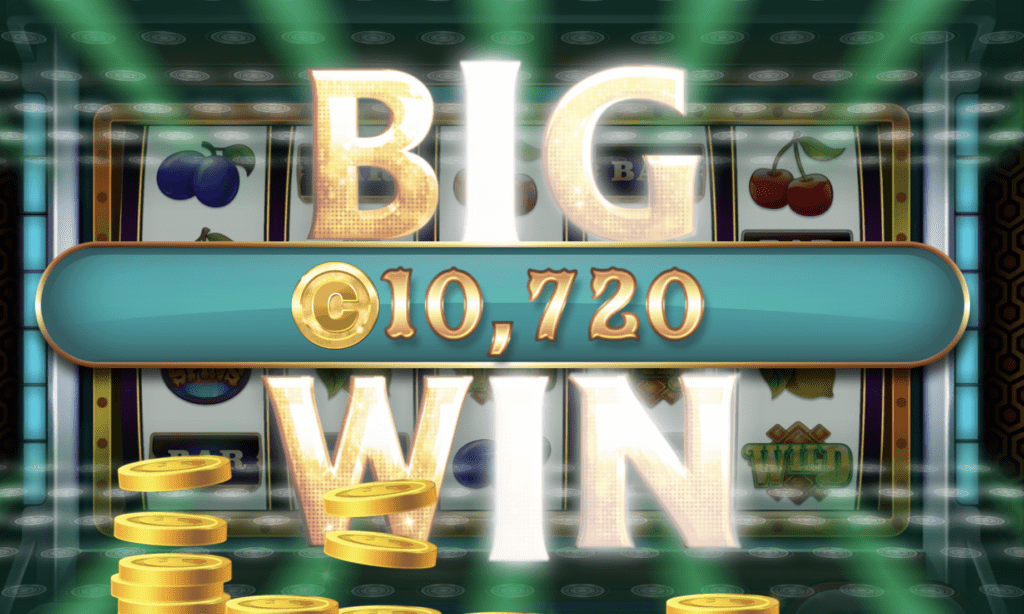I played slots on Casinoworld.com, created by FlowPlay inc. I would hope its target audience is adults, but the ease of play and quick rules unfortunately could easily target anyone who is able to count to five and click a button. I played a fishing version first, but did not really like the theme so I moved on to the classic 7s and cherries game. I did not interact with anyone while playing this game.
I really strongly disliked playing the fish version of slots. It did not make any sense to me and I had to look at this diagram constantly because it felt like I was just clicking and receiving completely random coins for no reason.
It was actually really interesting though how this changed as soon as I switched to the classic version that I have seen before. I recognized the easily distinguishable icons of the diamond, bell, bar, 7 etc, and then all of a sudden my “winnings” made sense. This was a really strange phenomenon to me because I was literally playing the exact same game, but without a proper theme, the game felt disconnected and pointless, but then all of a sudden it had a point (?). Not only that, but not two spins after I started understanding how I was winning, I won a jackpot of some sort.
I thought this was cute and cool, but then realized I probably actually hadn’t made any “coins” because I had already spun about 10 times and was betting 1000 each spin.
There are a lot of ways that this game in particular could lead to addiction. First of all are smaller jackpots like this. I was actually just about to close out the tab to this game until I got this win. After that, I felt like maybe I was getting “lucky” and spun three more times, and all three gained nothing. This made me frustrated because I didn’t want to finish the game without winning something on my last turn, which is a completely irrational thing to think. It was just how the engineers and educated people at the end of the reading noted that they are all susceptible to doing risky, superstitious things when they play, despite perhaps even knowing the mechanics of the code and machines. The reading was also really eye opening to just how “unfair” these games actually are. Seeing the diagram of the reel expansion made a simple, five part game seem like a complicated maze. Like I mentioned earlier, anyone with a finger has the skills to play this game, and the odds looks enticing to the naked eye. But under the hood it is nearly impossible.
Another interesting thing that I learned in the reading is that the winning slot combinations are always spinning, regardless of if someone is playing on not. It appears that the player has more control over the outcome and the number of times they play attributes to their odds, but it really does not. That example about someone walking away from a machine for the next person to win was eye opening. I was under the impression, too, that if that person had stayed they would have won, but when the paper noted that that is actually not true because of the mechanics of a constantly spinning number I was shocked. I can see this leading to addiction because it really makes it feel like if you play long enough, one turn will eventually be the “right” one, when in reality it all just comes down to the timing of when you click the button.
I have never played games like poker or Texas hold em that require a little bit of skill because gambling runs in my family, so I cannot really compare across games. I can see how having a “skill advantage” could lead someone to want to play even more, both to build this skill and because they would want to take the chance that they are better players than the people at their table, but I cannot speak for myself.





